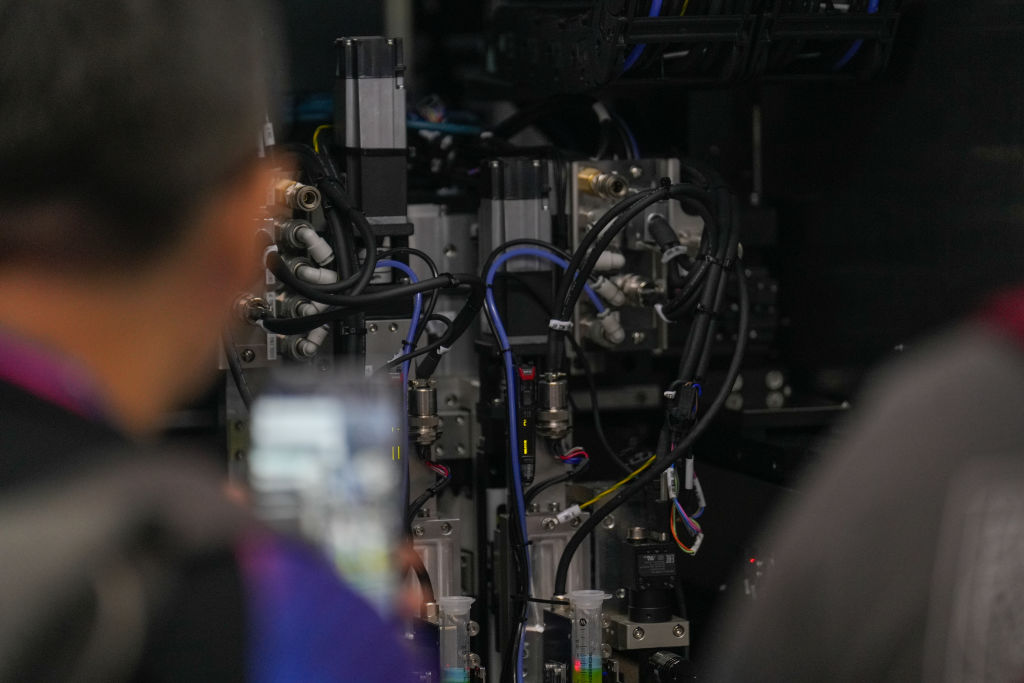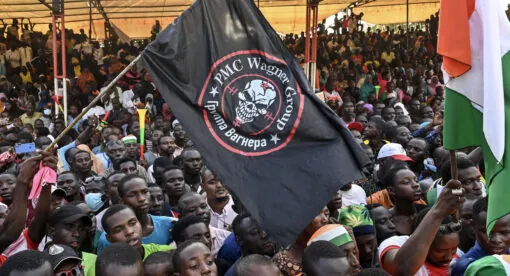Taiwan has emerged as a potential flashpoint amid rising tensions between the U.S. and China. Such tensions have spanned numerous spheres, from Beijing’s dissatisfaction with high-profile U.S. visits to Taiwan and vice versa to an increased frequency and scale of Chinese military drills surrounding the island. With Taiwan’s presidential election set for January 2024, the island and its political orientation with respect to Washington and Beijing is likely to feature even more prominently in the U.S.-China standoff in the coming months.
While the possibility of a Chinese military intervention in Taiwan cannot be completely ruled out, the more likely threat in the near to mid-term is China’s increased use of economic and diplomatic statecraft as a means to pressure Taipei away from the U.S. and toward Beijing’s ultimate goal of reunification with the island. https://www.reuters.com/world/china/china-says-should-advance-peaceful-reunification-with-taiwan-2023-03-05/Taiwan’s supply chain is vulnerable to manipulation by China, and it is important for the U.S. to supplement its traditional forms of security support for Taipei by helping the island strengthen its economic resilience and energy security. To effectively do so, the U.S. must coordinate its efforts with not only Taiwan and its traditional partners but also a constellation of nonaligned countries throughout the Global South. Such states, from India to Southeast Asian nations to those in the Gulf, could prove pivotal for U.S. strategy when preparing for a possible crisis.
The Importance of Nonaligned States
As Russia’s war in Ukraine has shown, nonaligned countries have come to play an increasingly important role in shaping the global system. Despite U.S. and NATO security and economic support for Ukraine and the West’s efforts to sanction and isolate Russia, the Russian economy has not collapsed and the Kremlin’s war effort in Ukraine – for all its challenges – remains intact. In large part, that is because most non-Western countries, from China to India to the Gulf states to even NATO member Turkey, have maintained or increased their economic ties with Russia. This has enhanced Russia’s economic resilience, which in turn has allowed Moscow to continue to wage its war in Ukraine, even if most countries (with notable exceptions like Iran and North Korea) don’t directly support Russia in that war.
A similar dynamic could exist in Taiwan. Western and Western-aligned countries and blocs, including the U.S., the EU, Australia, and Japan, support the island and would likely come to its aid in the event of a crisis, but there is a large grouping of states whose position would be far from clear in the event of a Chinese intervention in Taiwan. As with Russia, many nonaligned states have significant economic ties with China that they would be hesitant to sever over a Taiwan crisis. And Taiwan, which is both more integrated in the global economy and more geographically distant from its primary security partners, could be even more vulnerable to nonaligned neutrality than Ukraine.
Taiwan’s vulnerability stems from two major factors. The first is that it is an island, which makes it dependent on sea lines of supply for all its essential imports and exports, and which China could potentially manipulate. Such manipulation could be done through a blockade; however, this would be considered as an act of war and therefore entails substantial risks for Beijing. But manipulation could also be achieved through more subtle means, such as prolonged military exercises, port redirection, or interdictions of commercial vessels under legal pretense.
The second factor is Taiwan’s energy dependence and associated vulnerabilities. Taiwan relies on imports for more than 97% of its energy supplies. Coal and natural gas imports are important for Taiwan, as they are the primary sources of electricity needed to power Taiwan’s energy-hungry semiconductor sector. Taiwan plays a crucial role in the global semiconductor supply chain, producing 60% of global chip supply and 90% of the most advanced chips. Given that Taiwan has stockpiles of roughly 40 days for coal and only 10 days for natural gas, any disruption to its energy shipments could have significant economic consequences for not only the island but also the global economy, which has become increasingly reliant on advanced semiconductors in everything from smartphones to military systems to electric vehicles.
Beijing would not necessarily need to implement a full-scale blockade to pressure Taiwan’s energy supply. Instead, it could selectively manipulate key elements of that supply in a way that would go below the redline of war while at the same time pressuring Taipei to factor in Beijing’s position. This could come in the form of leveraging its diplomatic and economic ties with some of Taiwan’s main energy suppliers, all of which are suppliers to the much larger Chinese market. This includes Russia, which has become increasingly aligned with China since the Ukraine war, as well as nonaligned states like Qatar and Indonesia.
For example, such states could enhance Beijing’s position by agreeing to redirect their Taiwan-bound energy exports to Chinese ports on so-called environmental grounds, which Beijing has selectively used to justify both its foreign and domestic policies. Just as Russia has proven its use of energy as a political weapon in Europe, China has also restricted energy access for political means – for example, by temporarily banning coal imports from Australia following the latter’s criticism of Beijing’s COVID-19 policies. It is thus possible that Beijing could try to convince countries to manipulate Taiwan’s energy supplies, even if temporarily, though their compliance would depend on their ties with Beijing. At the very least, China is hoping that states like Qatar, Indonesia, and India would be neutral in the event of a crisis over Taiwan, in the same way many countries have retained their ties with Russia without actively supporting Moscow’s war position.
Policy Recommendations
Taking this into account, the U.S. and Taiwan must take seriously China’s economic statecraft and other nonmilitary threats to which Taipei can be subject as tensions between Washington and Beijing continue to build. China has paid close attention to Russia’s war in Ukraine and the substantial security support that the U.S. and its NATO allies have provided to Kyiv, even though Ukraine is not a member state. Beijing must factor into its calculus that a similar dynamic could exist in the event of launching a military intervention in Taiwan, which could in turn spark security support from the U.S. as well as other partner countries like Japan and Australia. Thus, at least for the near term, Washington and Taipei should plan for more pressing Chinese economic and diplomatic threats to Taiwan.
There are several measures the U.S. should take when it comes to Taiwan:
Coordinate efforts with nonaligned countries: It is important that the U.S. and Taiwan work with not only traditional allies but also nonaligned states to serve as force multipliers in strengthening Taiwan’s resilience, whether in energy (as with Indonesia and Qatar), semiconductors, or its broader security position. Taipei has already taken steps to diversify its relationships in South and Southeast Asia, as can be seen in Taiwan’s effort to develop and strengthen its New Southbound Policy and leverage its advanced economy and chip expertise to cooperate with countries like Indonesia in areas like technology and smart agriculture. The U.S. should assist Taiwan in expanding such efforts, especially as many other Global South regions – from Central Asia to Latin America to Africa – hold critical minerals that are key to the energy transition.
India, due to its large size and potential as a counterweight to China, is particularly important in this regard. Fifty-five percent of India’s trade goes through the South China Sea/Taiwan Strait maritime corridor, making peace an imperative for India’s economy. With the newly formed U.S.-India Comprehensive Global Partnership, the United States has new mechanisms to indirectly strengthen Taiwan’s position without compromising the traditional “One China” policy. A June joint statement by U.S. President Joe Biden and Indian Prime Minister Narendra Modi called for increased cooperation on green energy initiatives and bolstering India’s semiconductor industry – both areas where Taiwan and India can cooperate to strengthen energy markets and critical industries against vulnerabilities from Chinese manipulation.
India’s strategic competition in the Indo-Pacific region would benefit from increased cooperation with Taiwan as well; India wants to challenge China’s dominance in the region, and not backing down in the face of Beijing’s authoritarian stance would show that New Delhi is ready to position itself as a reliable regional power. Taiwan has also signaled that it welcomes increased ties with India, creating fertile ground for India to take the lead in challenging China’s dominance in the region.
Enhance Taiwan’s energy security: Given Taiwan’s energy vulnerabilities, the U.S. should help strengthen the scale and diversity of the island’s energy supplies, including both fossil fuels and renewable energy sources like wind and solar. As electricity consumption is expected to increase 267% for Taiwan’s national semiconductor champion TSMC by 2030, the island must be prepared to meet this growing demand even without the potential for Chinese manipulation. As such, the U.S. should leverage its role as a global exporter of natural gas (an important bridge fuel), its technological leadership in fighting climate change, and its relationships with other energy suppliers to help Taiwan meet these needs. The U.S. should also assist Taiwan with plans to scale down nuclear power in a strategic and responsible manner while helping the island get back on track to meet its climate goals.
Contribute to the resilience of Taiwan’s semiconductor sector: As the U.S. and its EU allies seek to secure their supply chain of semiconductors through reshoring and “friend-shoring,” it is important for Washington to do so in a way that does not fundamentally compromise Taiwan’s “silicon shield” as a mitigating factor against Chinese intervention/manipulation. This includes working with Taiwanese companies in both the private and public sectors to make sure they continue to play a leading role in the supply chain and to offset China’s efforts to absorb Taiwan’s critical technologies and human resources.
The United States would do well to pursue such policies and encourage these moves among nonaligned states to bolster Taiwan’s security in the region and to counter China’s influence. With important elections approaching in Taiwan and the U.S. in the coming year, this is an opportunity for both Washington and Taipei to shore up their position in the short term and to prepare for the larger challenges affecting global stability – from both China and climate change – down the line.
Eugene Chausovsky is the Senior Director for Analytical Development and Training. Chausovsky previously served as Senior Eurasia Analyst at the geopolitical intelligence firm Stratfor for more than 10 years. His analytical work has focused on political, economic and security issues pertaining to Russia, Eurasia, and China, as well as global connectivity issues related to energy and climate change. He tweets at @eugenechausovsk.
Minna Jaffery-Lindemulder is Senior Manager for Training and Analytical Development at the New Lines Institute. Her research focuses on South Asia-Persian Gulf relations, terrorism ideology, and U.S. national security. Previously, Jaffery-Lindemulder has done research at Columbia University’s Tow Center for Digital Journalism, the Center for American Progress, Hanover Research, and the National Partnership for Women & Families. She tweets at @minnaajaffery.
The views expressed in this article are those of the author and not an official policy or position of the New Lines Institute.








